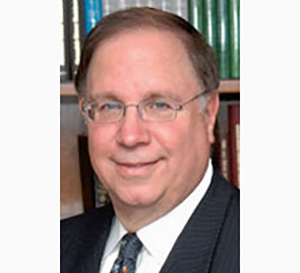
Part III
As part of American Jewry’s new leadership responsibility, some American Zionists urged their fellow Jews to strengthen the Jewish homeland in Palestine. Judith Epstein, President of Hadassah, the Women’s Zionist Organization of America, declared, “Because the strength of the Jewish people in Europe has been broken, American Jews must take up the burden of defending Zionist up-building in Palestine.”
Dr. Israel Goldstein, president of the Jewish National Fund of America (JNF), asked support for the Palestine land redemption program of the fund, while Dr. Solomon Goldman, president of the Zionist Organization of America (ZOA) asked that “all available material and moral support” be extended to Palestine. “The fate of the Jewish homeland,” he said, “is linked with the fate of humanity.”
Although American Jews were being asked to direct their resources to the pressing needs of the Jews in Europe and Palestine, they were warned not to neglect the threats of anti-Semitism at home. Edgar H. Burman, commander of the Jewish War Veterans of the United States, stressed “We must be on guard not merely against the willful misleaders of bewildered European nations but also against their imitators in our own land who seek to set brother against brother and American against American.”
In a his Rosh Hashanah sermon on September 15, 1939 quoted in The New York Times, Milton Steinberg, rabbi of the Park Avenue Synagogue in New York City, also warned of the perils of anti-Semitism in the US. “Shocked as we are by the cruelties of a European war, it behooves us to remember that what is happening is only a more exaggerated form of what happens in peace-time unobserved. This contempt for life which made the war possible, the futilities of culture that does not civilize, the travesties of a morality and religion that are so meaningless as to be suspended—these are the normalities of our existence. It is the duty then of religiously minded Americans to bend their energies to removing from American society the very manifestations which in violent form are ravaging Europe.”
How Did American Jews View the Devastation of Jewish Life in Europe?
American Jews expected the war in Europe would bring incalculable suffering and destruction, yet they were confident the Jews would survive and Hitler would be destroyed. “A great many Jewish people have been massacred, tortured or otherwise victimized,” observed Abraham Cahan, editor of the Forward. “As a race, however, we have survived, all the Hitlers notwithstanding, and thanks to the great democracies of today, we hope to survive Adolph Hitler as well.”
Samuel Margoshes also expressed optimism in the future. “The Jewish people,” he remarked, “must never despair. The pages of Jewish history give us the assurance “that ‘our enemies’ will perish. There is no doubt that when it is over, there will be a new word and a new order of things. Under this order based on justice and fairness, the Jewish people alongside of other peoples, now under the boot of the tyrant, will take its rightful place.”
The Jewish Outlook, published by the Mizrachi Organization of America, agreed with this optimistic view: “We are hopeful that in a short while there will come an end of barbaric cruelty and anti-Semitic persecution. We trust that the wave of sadism will subside and humanity and brotherhood again be exalted over the world.” They were confident that “out of the horrors of the present there will come introspection, atonement and a glory that will live on when the terrorists have descended into the eternal execration of history.”
In the October issue of The National Jewish Monthly, Albert Viton said he believed in the ultimate demise of Hitler and that a better world would emerge, even though perhaps “as many as half” of European Jewry would not survive. He suggested American Jews “fix” their “gaze on the distant objectives as the more immediate objectives were too horrible to contemplate.”
Adolph Held, president of the Jewish Labor Committee, avowed in the American Jewish Congress publication Congress Weekly that “in this hour when despair sweeps over hundreds of Jewish towns in Poland…we dare not lose our spirit, and we must strengthen our soaring conviction that Hitler and his fellow beasts will fail in their attempt to rule by force.”
In his Rosh Hashanah sermon of September 15, 1939, quoted in The New York Times, Rabbi Israel H. Levinthal, the spiritual leader of the Brooklyn Jewish Center in the Crown Heights section of New York, acknowledged that “ours will be the task, like Noah, to build a new world. We shall have to help in the rebuilding of the old, and above all, to fashion here in America a new and vital center of Jewish religious and cultural life to carry on the work that has been destroyed in the lands across the sea.”
By Alex Grobman, PhD










